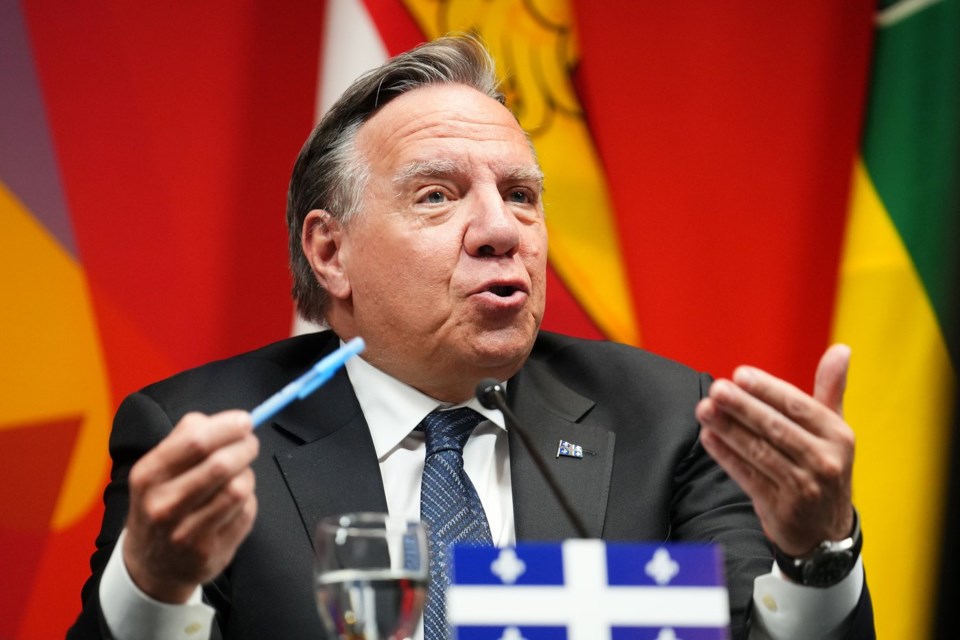MONTREAL — Quebec Premier François Legault is meeting with several of the province's financial heavyweights today as his administration readies its response to the tariffs set to be imposed by United States President Donald Trump.
Legault and some of his ministers were scheduled to speak with CEOs from a pair of banks as well as the heads of the province’s pension fund manager, its investment arm and its electric utility. He is expected to speak with media following the meetings.
The premier wrote Sunday on social media that the government is preparing for what could be a lengthy and painful disruption to the province's economy.
"We must not have any illusions, it will hurt us," he wrote on X.
He said the meetings with the financial leaders would include discussions on how to support impacted industries and workers. He has previously said government infrastructure projects and major projects at Hydro-Québec could provide some jobs to offset the potential losses.
While the trade war could also present an opportunity to expand domestic industries, he said that wouldn't happen quickly and urged people to buy from local businesses to provide support.
"Even if this attack from President Trump is very shocking, even if the next few months are going to be difficult, we must keep a cool head, roll up our sleeves and fight," he wrote.
The retaliatory measures could include a 25 per cent penalty on American companies attempting to bid on Quebec government contracts, Economy Minister Christine Fréchette told Radio-Canada on Monday.
"We will introduce, not more not less, the equivalent of a 25 per cent tariff on those submissions," she said.
Fréchette said in the radio interview that the penalty Quebec is planning to impose would make it all but impossible for American companies to be selected because it would increase their bids by 25 per cent.
The province's forestry minister, meanwhile, said the new duties coming on Tuesday would bring the total tariff on softwood lumber to 39.5 per cent, when added to a 14.4 per cent countervailing duty already in place.
"Although the Americans still need our wood to meet their great demand, this is a measure that will have a major impact on those in the forestry sector," wrote Maïté Blanchette Vézina, who added that 10 per cent of U.S. lumber imports come from the province.
The Quebec government previously said the province's liquor board would stop selling American products as of Tuesday and wouldn't supply them to bars or restaurants.
The mayors of both Montreal and Toronto confirmed Monday that they're developing their own plans to respond to the tariffs, in partnership with other levels of government.
Toronto's action plan will include a review of the city's procurement plans and a buy-Canadian initiative to prioritize local goods and services, Mayor Olivia Chow said Monday.
"We do have a $78-billion budget where we buy our food for kids' program, for shelters, for child-care centres, in every aspect of how the city is operated," she said. "It matters. It creates jobs, local jobs."
Montreal Mayor Valérie Plante said her administration was also reviewing its list of American suppliers and looking for local and international alternatives. She said the city could potentially impose its own 25 per cent penalty on American suppliers who bid on municipal contracts.
"The friendship between our nations has always been based on mutual respect," she wrote in a statement. "If Washington chooses confrontation, we will answer with the same determination."
This report by The Canadian Press was first published Feb. 3, 2025.
Morgan Lowrie, The Canadian Press

